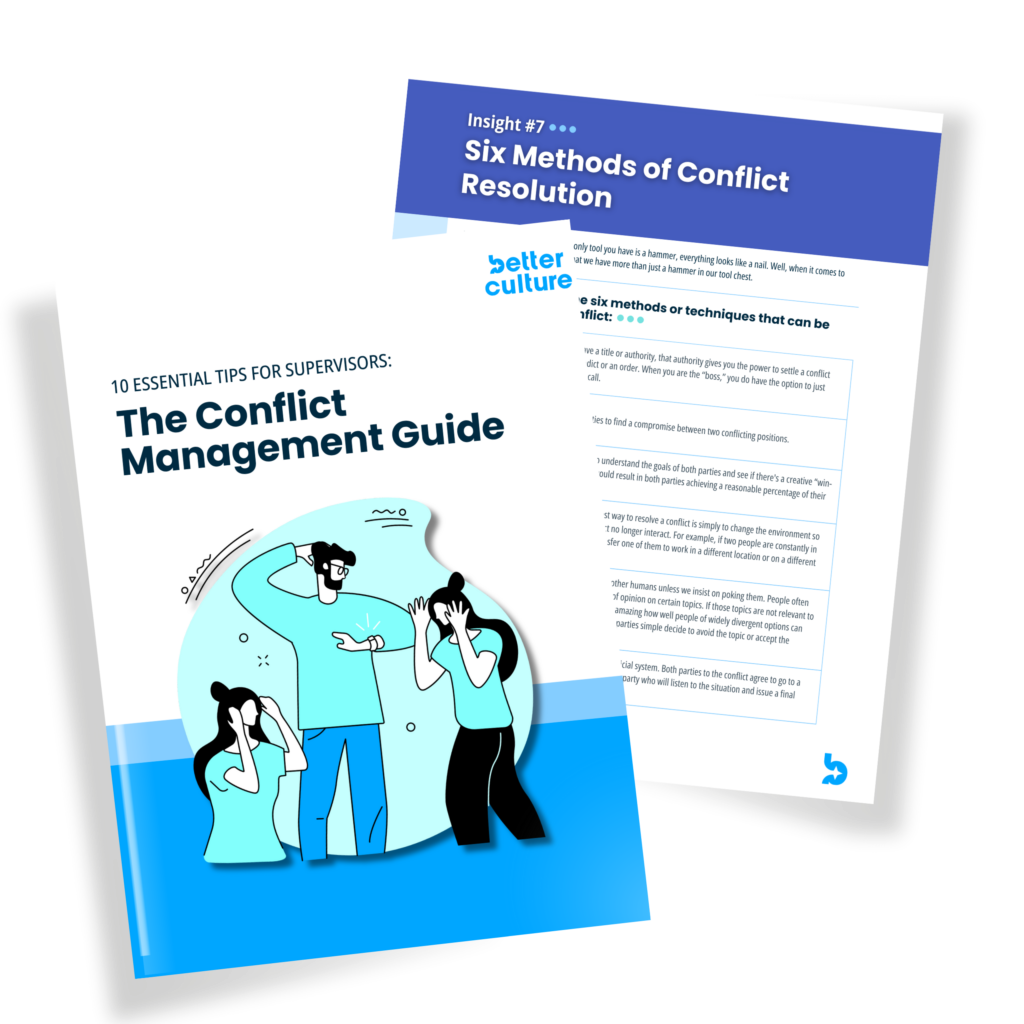“People are our most valuable resource”, so says dang near every CEO. And though it may be trite, it is also true. Here is something else that is not as often said but is also true: one of the most damaging factors to any organization can also be your people.
Thankfully, we are usually talking about a small subset of your employees who come into your workspace with a negative, toxic attitude. We call these employees “Vacuums.”
Vacuums: Those Employees Who Suck the Life from Your Culture
Vacuums have an unfortunate knack for sucking the energy and enthusiasm out of any room they enter.
Can we get more specific about how you can spot a vacuum? Absolutely!
Vacuums are people who:
- Regularly say, “Thank God it’s Friday!”
- Disparage their company or manager as the ‘bad guy’ (“Cathy is making me work the late shift again…”)
- Assume the worst when a colleague makes an error
- Infuse unnecessary drama into the workplace
- Respond defensively to coaching and constructive feedback
- Make sarcastic or cynical comments that undermine teammates
- Exclude people or operate in cliques
- Are inconsistent, putting forth their best effort only when they are being observed
Vacuum employees work in direct opposition to the impact and influence of your great employees (your ‘Stars’). Within your workplace there is a battle going on between your Stars and your Vacuums – the battle is who is going to influence the substantial number of your employees who are neither a Star nor a Vacuum – they are in the middle. Leaders must understand that Stars will pull those in the middle up; Vacuums will pull them down.
It takes a lot of work to create a great company culture. But a few vacuums can do a lot to tear that culture down in a hurry.
Protecting the Right of Good Staff to Work with Good Staff
That’s why BetterCulture is so insistent on our 4th Leadership Principle: Leaders protect the right of good staff to work with good staff.
We’ve been able to document the negative impact of Vacuum employees for the last 10+ years via the results of our BetterCulture Employee Engagement Survey.
This data, and our subsequent research and investigations, paint a clear picture that one of the top things any employer can do to dissatisfy or frustrate their best employees is to leave them working alongside vacuums.
One of our base culture survey questions asks employees how much they agree with the following statement: “Supervisors in my company effectively address poor staff performance.” Across data accumulated from hundreds of organizations across dozens of industries, this is the 2nd lowest scoring question in our base, 49-item survey.
Consider that for a moment. Which employees might you assume are scoring that question poorly? If you guessed the best Star employees, you’d be right.
Your best employees are frustrated when lousy employees (negative, disruptive, unproductive), who show no discernible effort to improve, get to stick around with seemingly no consequences.
This, in turn, hurts workplace morale, employee retention, work quality, production, customer satisfaction, and your business reputation. In other words, when you tolerate Vacuums in your workplace, you do so at substantial risk to your business!
How Can Companies Limit the Damage from Vacuums?
BetterCulture teaches a host of specific tactics and techniques for dealing with problem employees in our leadership training programs, but at the 30,000-foot level, leaders need to do three things to protect the right of good staff to work with good staff:
1. Tilt the world
We encourage leaders to “tilt the world” in favor of your Stars and away from your Vacuums. This means treating people fairly – not equally. Don’t be afraid to give Star employees more discretionary leeway, more input on decisions, more praise and recognition, maybe even the better shifts, etc. Your Stars deserve a leader’s trust and praise, and if Vacuums are left a bit wanting, that’s a good thing. It provides incentive to improve.
2. Have the conversation
Managers must take every opportunity to address vacuum-like behavior with an offending employee. At times, a Vacuum will be unaware of a supervisor’s (or peer’s) expectations or how they are being perceived. And it’s a manager’s job to remove any ambiguity by addressing issues quickly and clearly.
3. Follow-through.
It’s not enough to simply have the conversation with a Vacuum. Managers should give employees every resource to learn, grow, improve, and succeed; however, if a Vacuum employee persists in their harmful behavior, it’s a manager’s job to document and address those ongoing issues. Managers will need to work with their HR team to determine a specific course of action, but having and documenting clear and consistent performance management conversations will be helpful in getting a Vacuum to either shape up or ship out (and either of those is a great thing!).
A final Tip:
This advice runs near a grey area for some HR professionals (so don’t go overboard here), but BetterCulture believes you need to make sure your Star employees are never left to wonder if you are serious about protecting their right to work with good teammates.
It’s a fact that progressive discipline policies in some companies move very slowly. Such organizations are extremely cautious about terminating an employee, even if they are a world-class Vacuum. In those instances, we ask you to consider this question:
Imagine that you are a manager who is trying your best to address a Vacuum employee, but that process is stretching out for months as you work in partnership with HR.
Now also imagine that you are adhering to a strict confidentiality protocol by not disclosing to any other employees that there is a progressive discipline progress underway with that Vacuum employee.
Your Star employees who have to work with that Vacuum know darn well that employee is not meeting standards.
If you fail to tell those Star employees that the problem has been noticed and is being addressed, what are the only two things those Star employees can be thinking about you?
The answer is that your Star employees are likely thinking either a) that you are too oblivious to notice the problem or b) that you don’t care that there is a problem. Neither reflects well on you and both are a recipe for damage to your culture.
If you are a manager in that position, it’s BetterCulture’s advice that you make your Stars aware that a) you are aware of the problem, b) that you’re working on resolving it, and c) that you appreciate their patience and support. We are NOT advising that you disclose confidential personnel info, go into specifics about the stage of the disciplinary process, or any other protected information.
So yes, your Stars are your most valuable asset. But your Vacuums are often your biggest liability. Sometimes we go forward by subtraction. Get your Vacuums to improve or let them bless some other company with their energy-draining presence before they do more damage to yours.



